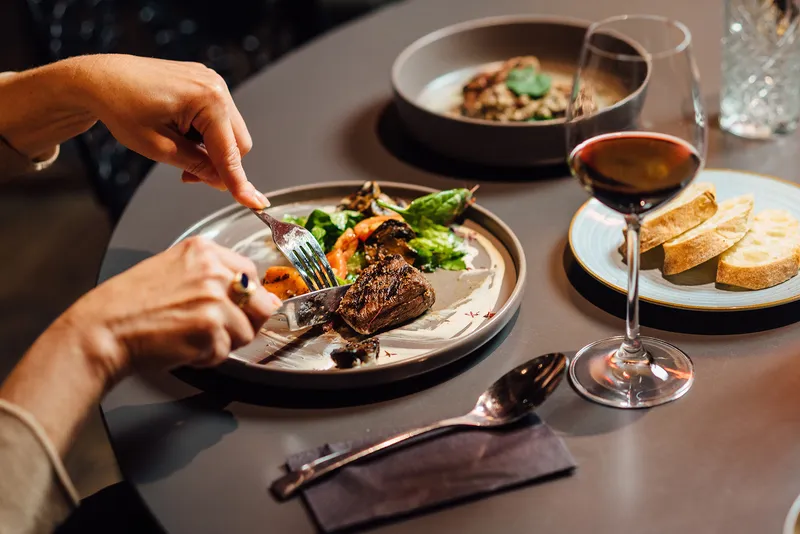How Gen Z is shaping the future of dining culture
Dining out for Generation Z is an experience—a conjoining of aesthetics, technology, and sustainability that goes far beyond the plate shaping dining preferences. It influences how restaurants operate—from menu innovation to customer engagement strategies.
The restaurant and dining atmosphere is in the midst of a transformation like no other, and is led by Generation Z, also known as Zoomers, who comprise about 83 million individuals born between 1995 and 2012.
With Gen Z making up a significant portion of the workforce, especially in the restaurant industry where they account for 49% of food service workers, it’s crucial to understand their unique characteristics and expectations.
For previous generations, dining out was for mere convenience or socialising, but for Generation Z, it is an experience—a conjoining of aesthetics, technology, and sustainability that goes far beyond the plate shaping dining preferences. It influences how restaurants operate—from menu innovation, to customer engagement strategies.

Image source: Shutterstock
With a digital-first mentality, a penchant for authenticity, and an eye for personalisation, this generation is disrupting the restaurant space in ways never seen before.
Aesthetic appeal
For Generation Z, dining is no longer just about taste; it is about storytelling through visuals. Social media has transformed restaurant visits into highly shareable moments, with ambience, plating, and even lighting being key to attracting diners.
A restaurant’s digital presence has never been more important. According to PYMNTS’ Connected Dining report, 37% of diners check a restaurant’s social media before visiting, with that number rising to 42% among Gen Z.
This shift means that, beyond great food, restaurants need to invest in visually striking interiors, unique dining experiences, and themed menus to stand out. The influence of food bloggers and viral trends only strengthen this movement, making a restaurant’s online appeal just as crucial as its culinary offerings.
Personalisation and customisation
The one-size-fits-all approach to dining is no longer effective. With a strong individualistic appeal, Gen Z has a deep appreciation for aesthetics, prompting restaurants to introduce customisable menu items, interactive dining experiences, and personalised settings.
According to RMS’ 2024 Value Meal report, flexible menu combinations are a top promotional preference for Gen Z, making them the only generation to rank customisation options among their top three promotional choices.
Whether it’s build-your-own bowls, ingredient transparency, or personalised meal recommendations based on dietary preferences, the industry is evolving to ensure every customer can tailor their meal to their liking.
This shift is less about mere preference and more about crafting an aura of exclusivity and uniqueness in the dining experience.
Tech-driven convenience
Technology has become an absolute necessity and can’t be regarded as an add-on anymore. Interestingly, 68% of Gen Z are happy to order food and drinks via apps, compared to just 23% of Baby Boomers, highlighting their preference for frictionless digital interactions. QR code menus, contactless payments, and self-ordered kiosks are now standard expectations rather than standard innovations.
Even virtual dining experiences, where customers can interact with chefs in real time or participate in the digital loyalty programme, are becoming more common. A restaurant not joining this accepted trend would surely be left behind in an ever-changing ecosystem.
Sustainability and ethical dining choices
Environmental awareness definitely characterises Gen Z, and their dining choices are a manifestation of such consciousness. Anything that comes with the sustainability tag must be accepted and is definitely influencing everything from sourcing ingredients to reducing waste. Research by First Insight shows that 73% of Gen Z consumers are willing to pay more for sustainable food options.

Image source: Shutterstock
Restaurants are increasingly adopting eco-friendly choices such as using locally grown produce, zero-waste kitchens, and plant-based menu options. Ethical dining is defined not just by sustainability but also by ensuring good wages for workers, ethically sourced ingredients, and minimal carbon footprints. Businesses that align with these values are more likely to earn the loyalty of this discerning consumer base.
The rise of experiential dining
Apart from food, Gen Z seeks experiences that excite their senses and stir their emotions. According to Eventbrite, 78% of Gen Z consumers prefer spending money on experiences rather than material items, making immersive dining concepts more appealing than ever.
Pop-up restaurants, themed dining nights, and interactive food stations are all the rage, and they transform the meal into an event rather than just a casual outing.
The storytelling of dining has evolved into more of an immersion experience, such as watching the preparation of a dish, learning about the provenance of ingredients, and even cooking alongside chefs. Dining, where entertainment and food come together, is redefining industry standards.
Authenticity and cultural exploration
Gen Z values authenticity and seeks restaurants that deliver genuine culinary experiences, whether through global cuisines or regional specialities. It’s worth noting that 65% of Gen Z prefer restaurants that offer unique and memorable experiences (NPD Group, 2023), reinforcing their desire for dining that goes beyond just food.
For this generation, food has come to represent a cultural bridge, seeking establishments that advocate traditional cooking techniques and promote local sourcing on their menus that tell a story. Framing authenticity into branding and marketing, Gen Z is most likely to endorse restaurants that divulge what they stand for rather than using over-polished advertising.
An opportunity to engage
As Gen Z continues to shape the future of dining, the industry must evolve to keep pace with their expectations. Restaurants that prioritise aesthetics, digital convenience, sustainability, and experiential dining will lead the way.
The era of passive dining is over. Now every meal is an opportunity to connect, share, and engage. The restaurant industry is not only about food but also about experiences catering to the values and aspirations of a generation driving the future of dining.
The author is Managing Director of Bright Hospitality Pvt Ltd.
Edited by Swetha Kannan
(Disclaimer: The views and opinions expressed in this article are those of the author and do not necessarily reflect the views of YourStory.)







